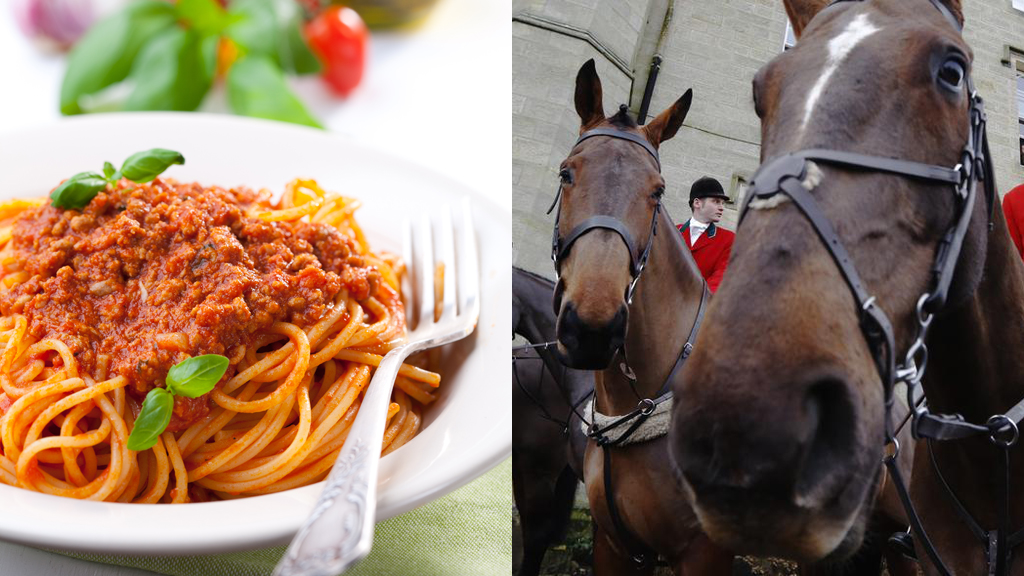Two UK meat plants raided in horsemeat investigation
With two more UK plants suspected of passing off horsemeat as beef, a former FSA executive blames a rapid change in EU food labelling laws last year for forcing retailers to stretch the supply chain.
Two meat plants were raided on Tuesday under suspicion of passing off horse meat as beef for kebabs and burgers.
The Food Standards Agency (FSA) and police officers entered Peter Boddy slaughterhouse in Todmorden, west Yorkshire, and Farmbox Meats in Llandre in Aberystwyth, west Wales. They have both been suspended pending the outcome of investigations into the horsemeat claims.
Environment Secretary Owen Paterson said: “It is absolutely shocking we have found this practice in the UK.
“It is the first incident and we will be following it up with the full rigour of investigating powers – and if there has been criminal activity I expect the police to bring in the full force of the criminal law.”
EU law changes
Earlier, Dr Mark Woolfe, former head of food authenticity at the FSA, told Channel 4 News that changes in EU law had contributed to the horsemeat scandal that has engulfed Europe. The law was changed in April last year to prevent retailers from describing “desinewed meat” as “meat” for the purposes of food labelling. But British retailers were given just two days’ notice of the change, said Dr Woolfe.
This led to a sudden rush by suppliers to find a new source of the cheapest type of meats used in sausages, burgers and ready-meals, he added, and may have contributed to beef products being contaminated by horsemeat. Desinewed meat is essentially very fine mince mechanically removed from butchered cow carcasses. It was used in most economy or value products in British supermarkets until the European Commission changed the law.
The FSA has detained all meat found and seized paperwork, including customer lists from the two companies in west Yorkshire and west Wales.

Andrew Rhodes, FSA director of operations said he had ordered a an audit of all horse producing abattoirs in the UK and was “shocked to uncover what appears to be a blatant misleading of consumers”.
Environment Secretary Owen Paterson said: “This is absolutely shocking. It’s totally unacceptable if any business in the UK is defrauding the public by passing off horsemeat as beef. I expect the full force of the law to be brought down on anyone involved in this kind of activity.”
Read more: How do we know what we’re eating?
UK retailers ‘forced’ abroad
European ministers, including Mr Paterson, are meeting in Brussels on Wednesday to discuss the horsemeat scandal and whether stretched supply chains are to blame. The prospect of tightened regulations will also be discussed.
Dr Woolfe said: “The FSA, bullied by the commission, issued a moratorium on desinewed meat, which was a perfectly good ingredient for fine mince. So the manufacturers who were using that for value products, had to leave the UK food chain and go to overseas suppliers at a price similar to desinewed meat or even lower. And this, I think, is where things started to go wrong.”
His comments come as the FSA urged supermarkets to test other meat products, such as pork and chicken, for contamination.
Manufacturers who were using disinewed meat for value products, had to leave the UK food chain and go to overseas suppliers at a price similar to desinewed meat or even lower. Dr Mark Woolfe
Dr Woolfe also said the FSA and the government failed to question the decision by the European Commission, and criticised the speed with which new legislation was adopted.
“This happened very quickly, really overnight,” he told Channel 4 News, “and this made a hole in the UK supply chain for a lot of value products.”
“When that supply ceased, the meat manufacturers had to find alternative sources… Probably they went abroad. And we’ve all seen that the longer the food chain becomes, the more complex it becomes, the more difficult it is to exactly know what goes on.”
Frozen burgers, traced to plants Ireland and Yorkshire, were the first casualties of horsemeat contamination back in January. Since then, horsemeat has been found in a range of processed foods including lasagne and spaghetti bolognese.